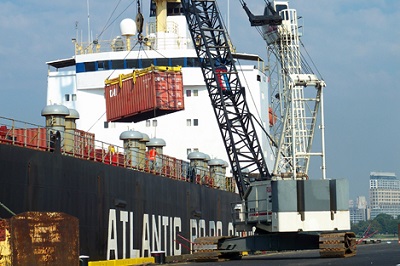Understanding DTI/ ASYCUDA++
Shippers Guide is the learning page of MMS Plus. Here we answer the five W’s and H of several issues in the shipping industry. This week we examine the DIRECT TRADER INPUT (DTI), read and find out more about the DTI.
INTRODUCTION
This document sets out the policy that the Nigerian Customs Service (NCS) will operate in processing imports and exports documentation (declaration), where the goods are declared to Customs electronically by means of Direct Trader Input.
DTI is one of the most versatile tools that ASYCUDA++ System offers in the field of Trade Facilitation. This facility not only reduces Customs clearance time, but also enables the trade community to play a more significant role in the clearance of goods.
For Trade Facilitation, the use of DTI by shipping companies and declarants symbolizes the launch of a series of steps that NCS decided to take in quest of modernizing clearance procedures.
With the introduction of DTI, NCS realize the following benefits:
- Reinforce customs controls, secure collection of revenue and improve the efficiency and effectiveness of customs operations;
- Strengthen the Government’s capacity in the formulation and implementation of effective economic and fiscal policy through provision of accurate and timely data;
- Facilitate trade by significantly reducing the cost and time of clearance;
- Introduce e-Government as a tool for improving public service delivery.
DTI POLICY OBJECTIVES
Main objectives of the DTI Policy are:
- To define DTI actors and regulate the use of DTI;
- To ensure the trade community uses DTI in submitting declarations to Customs Offices;
- To minimize declarations processing errors;
- To standardize procedures and controls on declarations at all Customs Offices; and
- To encourage declarants to keep proper records of their declarations.
DEFINITIONS
There are two types of DTI operators:
- DTI users:
DTI users are Carriers, Traders and Customs Agents, hereinafter also referred as Declarants, who wish to capture and submit electronic manifests or declarations directly from their premises.
- DTI cafés
DTI cafés are private companies acting as encoding centres or online self-service to Carriers and Traders for the preparation and submission of manifests and declarations.
PURPOSE OF DTI Cafés
DTI cafés, which may also be referred as “Data Entry Bureaus”, shall be assisting Agents in keying-in declarations.
DTI cafés will provide two main services:
- Full service on data capture of declarations on behalf of the Agent; and
- Self service facility offering declarants direct access to Customs’ Information System.
The system is provided with front-end credibility checks (local checks), which means that during data capturing at DTI Cafes, declarations shall only be rejected whenever the information is not complete or where HS and other relevant codes are not valid. It shall consequently be the Agent’s responsibility to identify and solve all errors or missing data, and fulfil all requirements for completion of declarations.
DTI Cafés shall be managed by the private sector. Data entry personnel shall be trained and certified as shown further in this Policy.
ORGANIZATION OF DTI Cafés
It is a requirement that DTI Cafés have solid administration structures.
For the purpose of this Policy, the structure shall comprise:
- Café Manager.
In charge of: i) acting as intermediary between the DTI Café and Customs; ii) monitoring and collate daily statistics on the number of declarations processed; and iii) being responsible for maintaining DTI cafés in conformity with best practices
- System Administrator.
In charge of: i) resolving all technical, hardware and system issues; ii) acting as intermediate between the DTI cafés and
Customs Technical Support partner; and iii) maintaining the ASYCUDA modules up-to-date
- Data Entry/Customer Care staff.
They shall: i) be a point of contact for users; ii) resolve errors;
iii) assist users with the use of ASYCUDA; and iv) advice users on DTI Café policies and procedures
- PROCEDURES USING DTI
DTI will be set up to allow Agents operating before and after arrival of goods, as it is established in the Customs Clearance Procedures
- ROLE OF DTI USERS
The implementation of DTI comes with important changes in the role of Stakeholders as follows:
- Carriers
With the implementation of this Policy all transport companies shall use DTI facilities from their premises or from DTI cafés.
All processes related to the Manifest shall be determined in the Manifest Procedure
- Agents / Declarants
With the implementation of this Policy, all declarants shall use one of the following valid options:
- i) DTI at their own premises; or
- ii) DTI Cafés.








